LAWS20058: Consumer Rights and False Advertising in Commercial Law
VerifiedAdded on 2023/04/21
|6
|357
|228
Case Study
AI Summary
This assignment provides legal advice concerning false advertising by jjNet under Australian Commercial Law. It identifies the key problem as jjNet's misleading statements about its products and services, adversely affecting consumer rights. The analysis references Section 29 of the Competition and Consumer Act 2010 (Cth), which prohibits misleading or deceptive conduct. The case ACCC v TPG Internet Pty Ltd is cited as precedent, where TPG was penalized for false advertising. The advice suggests filing a suit against jjNet for violating Section 29 and claiming damages for losses suffered due to the misleading advertisement, arguing that the contract formed is void due to the false advertisement. Desklib provides access to similar solved assignments and study resources for students.
1 out of 6
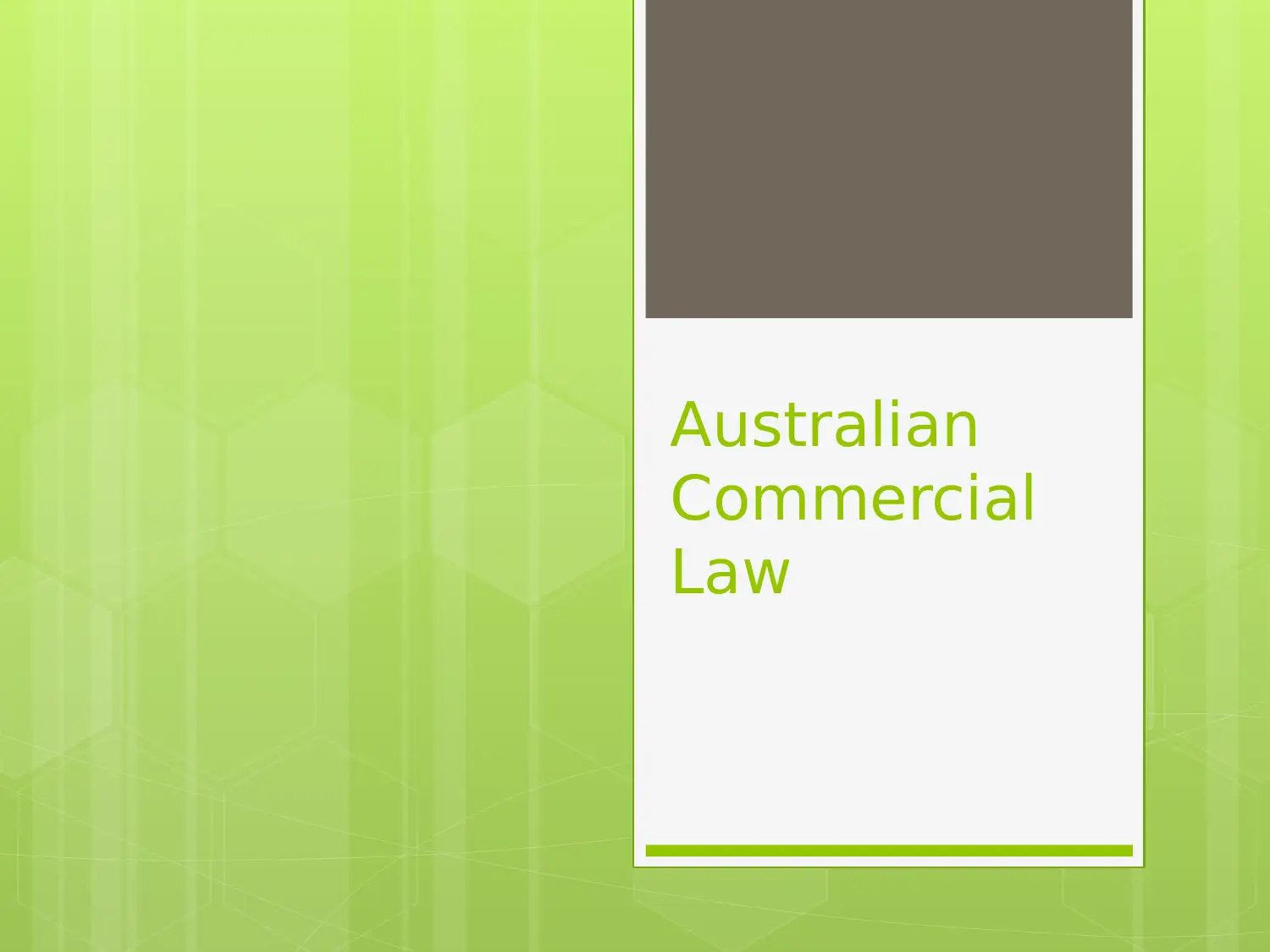
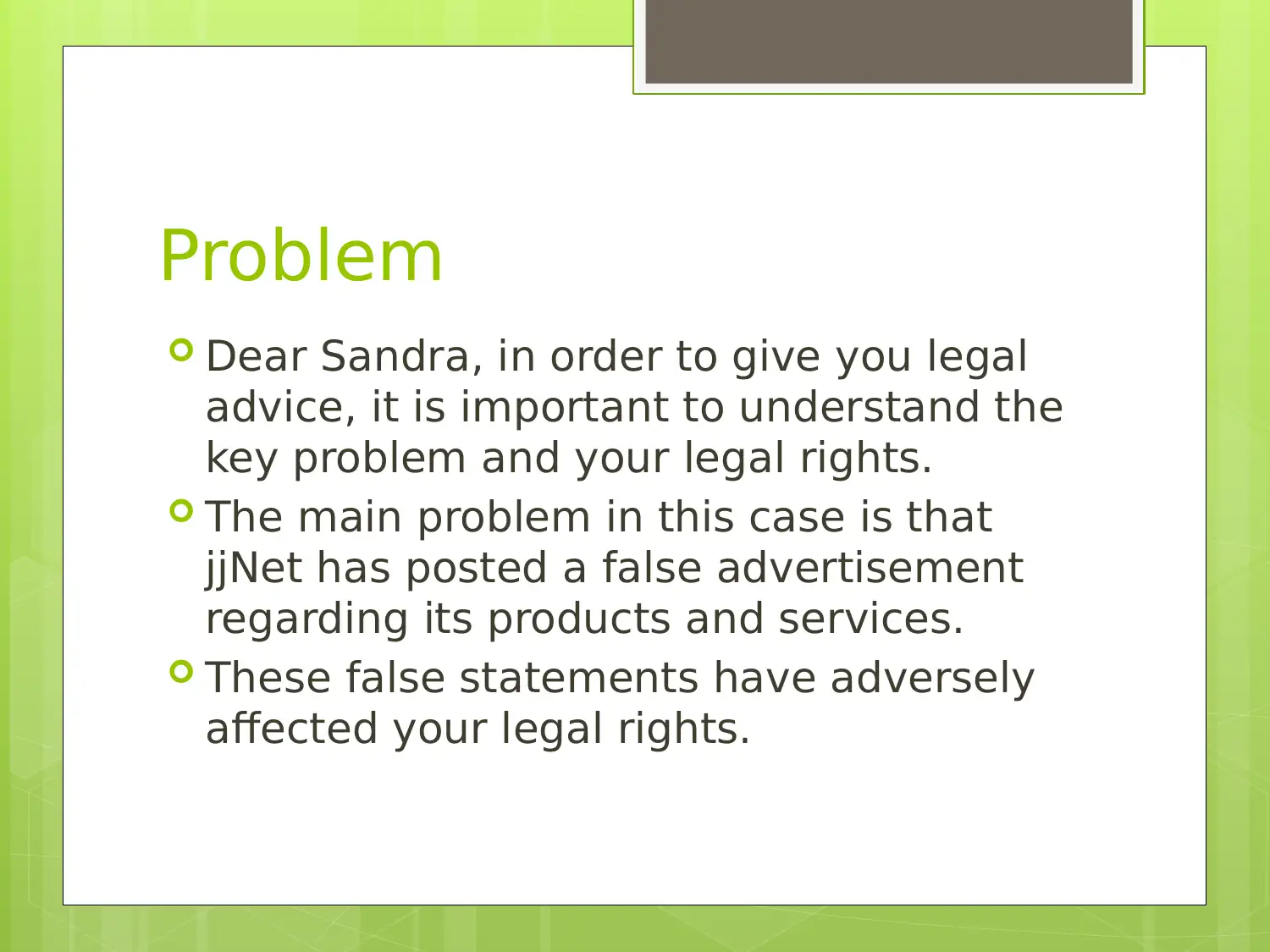
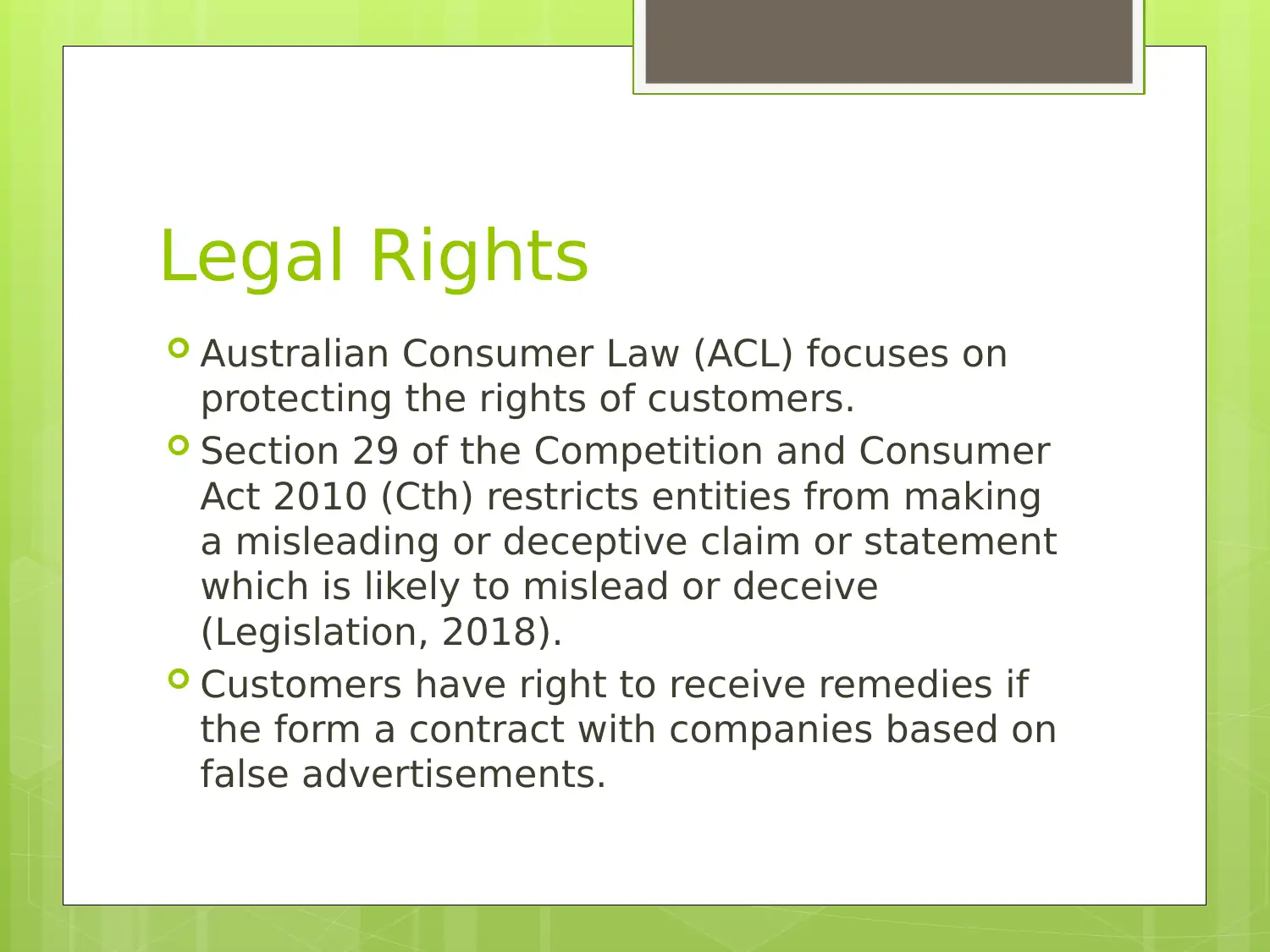

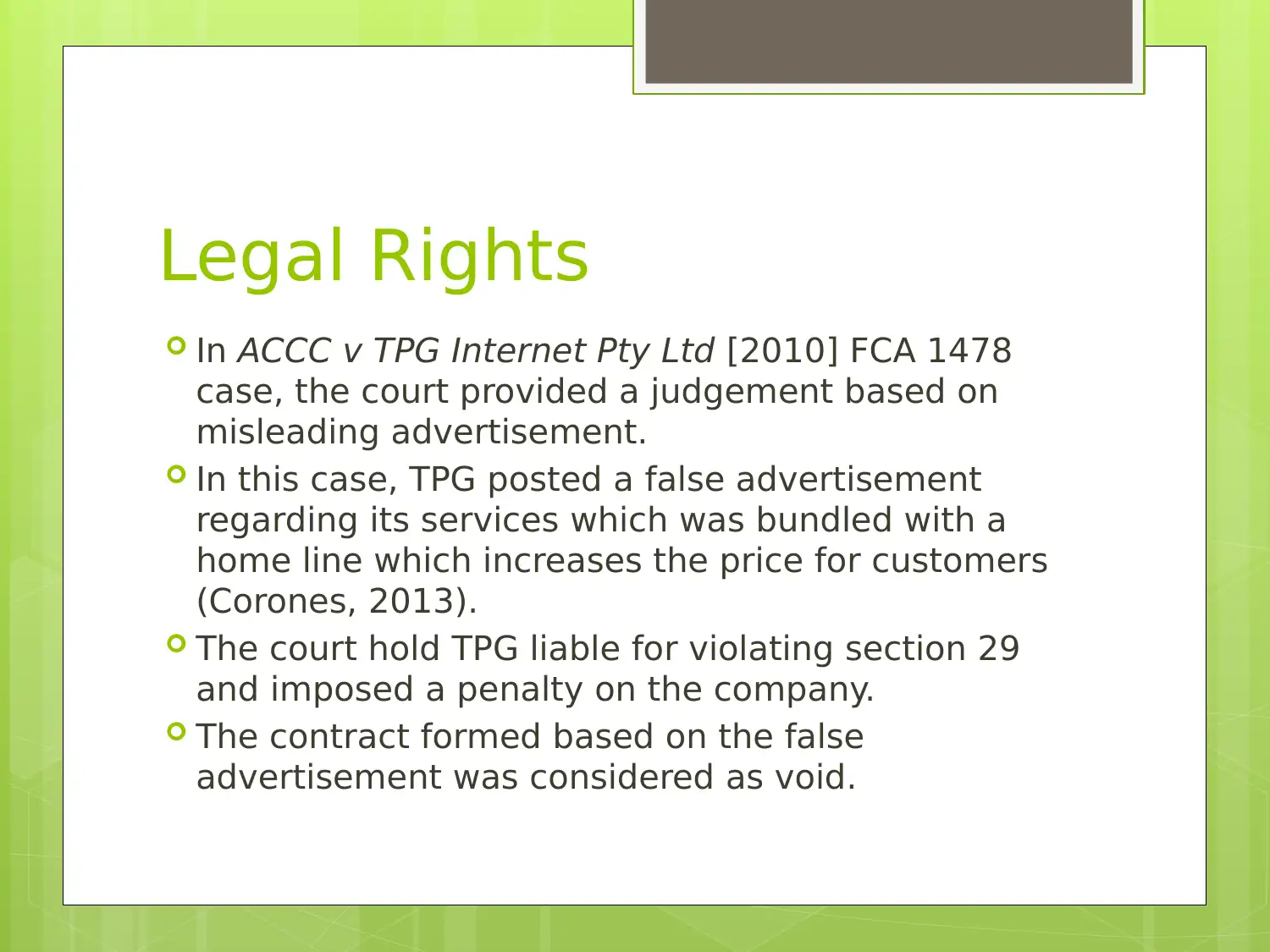
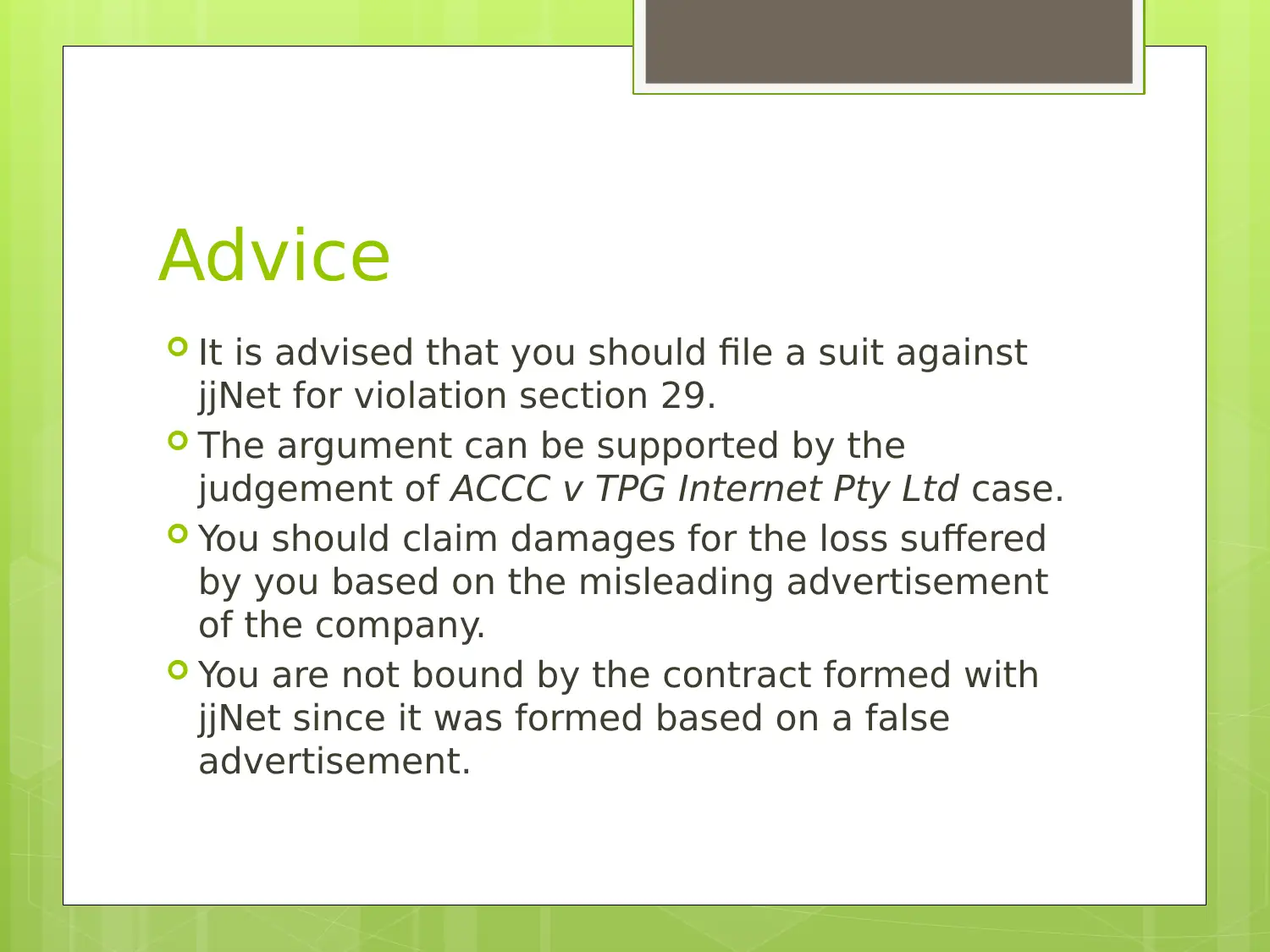
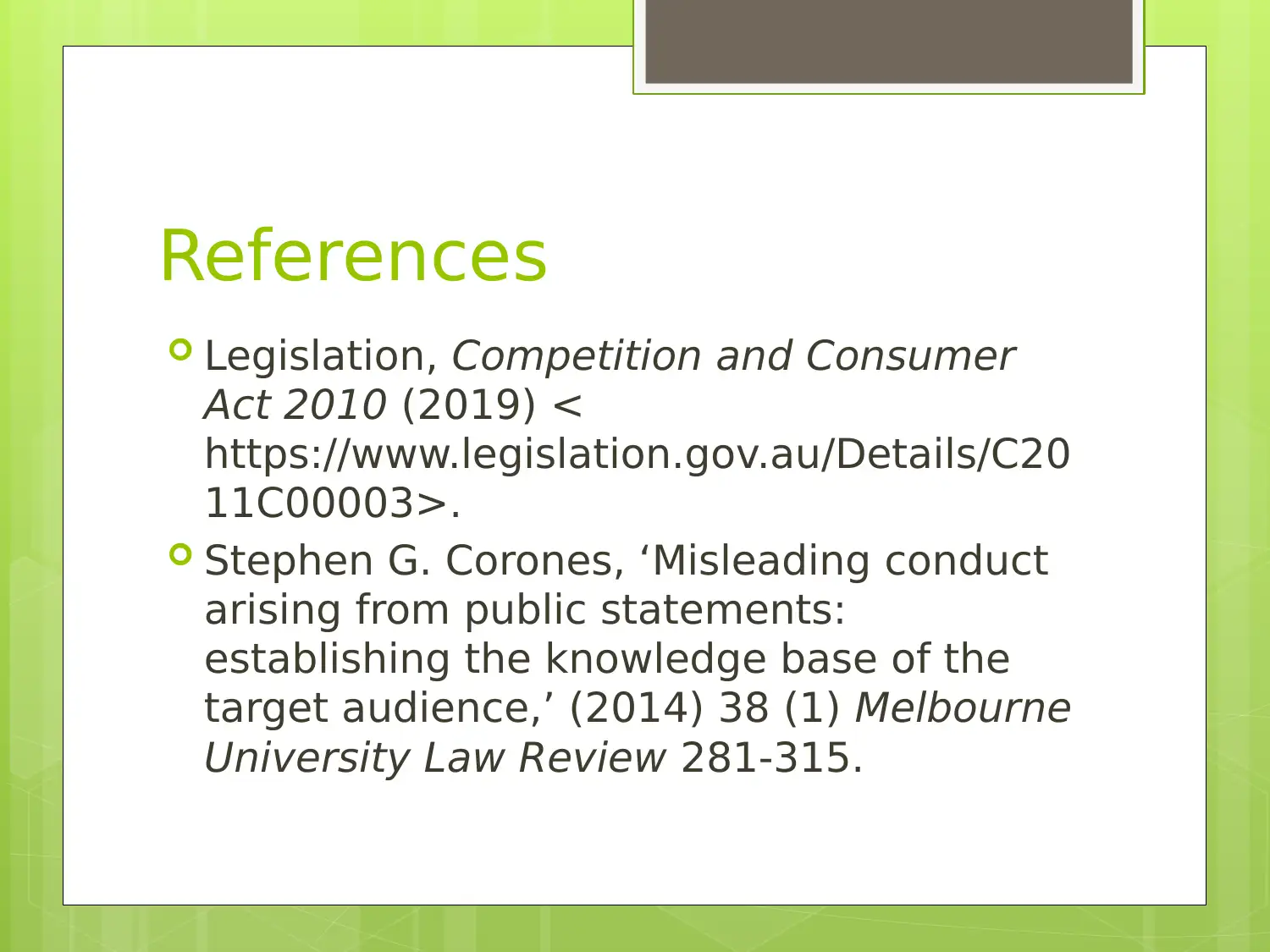





![[object Object]](/_next/static/media/star-bottom.7253800d.svg)